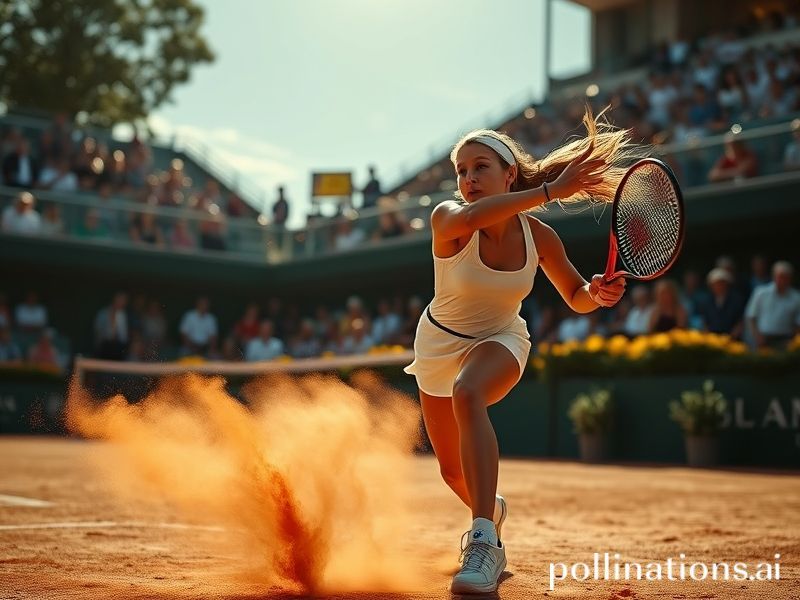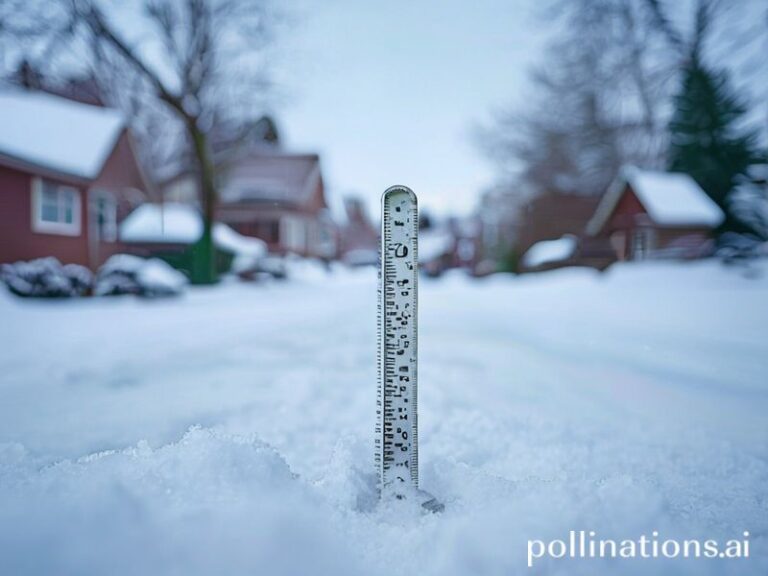Diana Shnaider: The Kazakhstani Tennis Prodigy Serving Geopolitical Curveballs
Diana Shnaider: A Tennis Prodigy for the Age of Global Collapse
From the clay of Roland-Garros to the hard courts of Flushing Meadows, 19-year-old Diana Shnaider has materialized like a polite but lethal apparition, reminding us that even as the planet smolders, someone somewhere is still practicing drop shots with monastic devotion. Born in Moscow, raised in Shenzhen, and now brandishing a Kazakhstani passport like a diplomatic multitool, Shnaider is the rare athlete whose nationality changes faster than most people’s streaming passwords—a walking, grunting testament to the fluid, occasionally illegal, nature of modern citizenship.
The tennis world, never a stranger to geopolitical whiplash, greeted her arrival with the usual cocktail of awe and spreadsheets. Here is a player who, in 2023 alone, collected junior Grand Slam hardware, cracked the WTA’s top 150, and still found time to study economics online—presumably to understand why her prize money arrives in three different currencies and a suspicious envelope labeled “miscellaneous.” While other teenagers perfect TikTok dances, Shnaider perfects the inside-out forehand, a shot that arcs across the baseline like a sanctions package: inevitable, precise, and devastating to anything in its path.
Internationally, Shnaider’s ascent lands amid a particularly spiteful moment in sports diplomacy. Russia’s invasion of Ukraine has turned every match into a referendum, every handshake into a minefield. Wimbledon banned Russian players outright, then un-banned them when it realized that sportswashing without the sport is just washing. Shnaider, by dint of paperwork necromancy, competes under the Kazakh flag, a country that has suddenly become the Switzerland of the steppe—neutral, convenient, and conveniently rich in uranium. The arrangement allows tournaments to breathe easier, fans to pretend politics doesn’t exist, and broadcasters to sell ad space without a chyron reading “alleged war crimes.”
Yet the broader significance lies not in which anthem plays when she wins—though one suspects Kazakh state television has already queued up the Borat-free version—but in what her trajectory says about talent’s survival instincts. Shnaider is the global elite’s answer to climate change: if the ground beneath you becomes uninhabitable, simply move. Her career is a masterclass in jurisdictional arbitrage, a case study for MBA programs titled “How to Monetize Your Backhand While Dodging Sanctions.” Parents in Shanghai, Riyadh, and Palo Alto are frantically googling “dual citizenship + tennis scholarships,” hoping to turn their toddlers into geopolitical Swiss Army knives.
Meanwhile, the sport itself lurches forward, a geriatric billionaire on life support. Prize money inflates faster than a Turkish lira, while rankings are calculated by algorithms so opaque they could moonlight as hedge funds. Into this chaos strides Shnaider, a teenager whose on-court composure suggests she has already priced in global recession, social collapse, and the distinct possibility that strawberries at Wimbledon will soon cost more than her first coach’s annual salary. When asked about pressure, she shrugs the shrug of someone who has witnessed entire economies evaporate. “I just play,” she says, which in 2024 sounds less like modesty and more like a survival strategy.
Off-court, she navigates a world where endorsements arrive with NDAs thicker than the Kremlin’s tax code and where every selfie is scrutinized for accidental propaganda. One mis-captioned Instagram story—“loving the vibe in [insert disputed territory]”—could crater a portfolio faster than a crypto exchange. Her team, a multinational ensemble of agents, lawyers, and at least one ex-KGB linguist, briefs her daily on which flag emoji is safe to use. The result is a public persona as curated as a museum exhibit, except the museum is on fire and the docent has fled to Dubai.
Inevitably, the cynics will note that Shnaider is merely another product in the sports-industrial complex, her story packaged and sold like gluten-free hope. But watch her retrieve a ball that physics insists is irretrievable, and the cynicism softens. For thirty seconds, the drone strikes pause, the markets hold their breath, and a teenager from everywhere and nowhere reminds us that excellence is still the most portable currency on Earth. Then the rally ends, the scoreboard updates, and the planet resumes its scheduled programming of existential dread.
Conclusion: Diana Shnaider does not save the world; she simply refuses to stop playing while it burns. In that defiant persistence lies a bleak sort of inspiration—proof that even as nations fracture and currencies crumble, someone, somewhere, is still keeping her eye on the ball.







